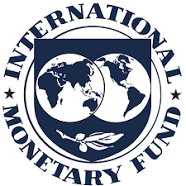The International Monetary Fund (IMF) has said that its growth forecast for Morocco is 3.3 per cent for 2025, while inflation is expected to be 2.2 per cent in 2024 and 2.5 per cent in 2025.
The IMF on Tuesday published its updated forecasts for economic growth in the Middle East and North Africa (MENA) region.
According to the data, growth in the region is set to rise from 1.8 per cent in 2023 to 2.2 per cent this year, before reaching 4 per cent next year.
Morocco, in particular, is expected to grow by 3.1 per cent in 2024. This estimate is in line with the adjustments made by the IMF for the region.
Last April, the IMF had anticipated slightly higher growth, with projections of 2.7 per cent for 2023 and 4.2 per cent for 2024.
However, recent revisions have led to this dynamic being qualified. For Morocco, growth in 2023 remained in line with the forecast of 3.1 per cent for that year and a moderate forecast of 3.3 per cent for 2025.
The IMF report, unveiled at the spring meetings in Washington with the World Bank, also highlighted other economic indicators. Inflation is expected to reach 2.2 per cent in 2024, followed by 2.5 per cent in 2025. In terms of unemployment, Morocco’s rate is expected to reach 12 per cent this year, before improving slightly to 11.5 per cent by 2025.
On a global scale, the IMF is maintaining its growth forecasts of 3.2 per cent for 2024 and 3.3 per cent for 2025, in line with the April 2024 edition of the World Economic Outlook (WEO).
At the national level, the IMF forecasts are in line with the estimates of Morocco’s Haut-Commissariat au Plan (HCP). The latter forecasts economic growth of 3.2 per cent in 2024, an improvement on the estimated rate of 2.9 per cent for 2023. This projection takes into account a 3.2 per cent increase in taxes and duties on products net of subsidies, as indicated last January by the Moroccan body.
The HCP has based its economic forecasts for 2024 on the provisions of the Finance Act for the year, which implements a series of measures to mitigate the socio-economic effects of inflation, drought and the impact of the Al Haouz earthquake, which struck the province of Marrakech on 8 September.
In response to the problems posed by this situation, a number of major projects and programmes will be rolled out. These include programmes to rebuild and upgrade the affected areas, direct social aid and housing assistance.
This approach stems from the need for resilience in the face of economic and natural crises, with the aim of stabilising and relaunching Morocco’s economy.
MN/Sf/te/fss/GIK/APA


